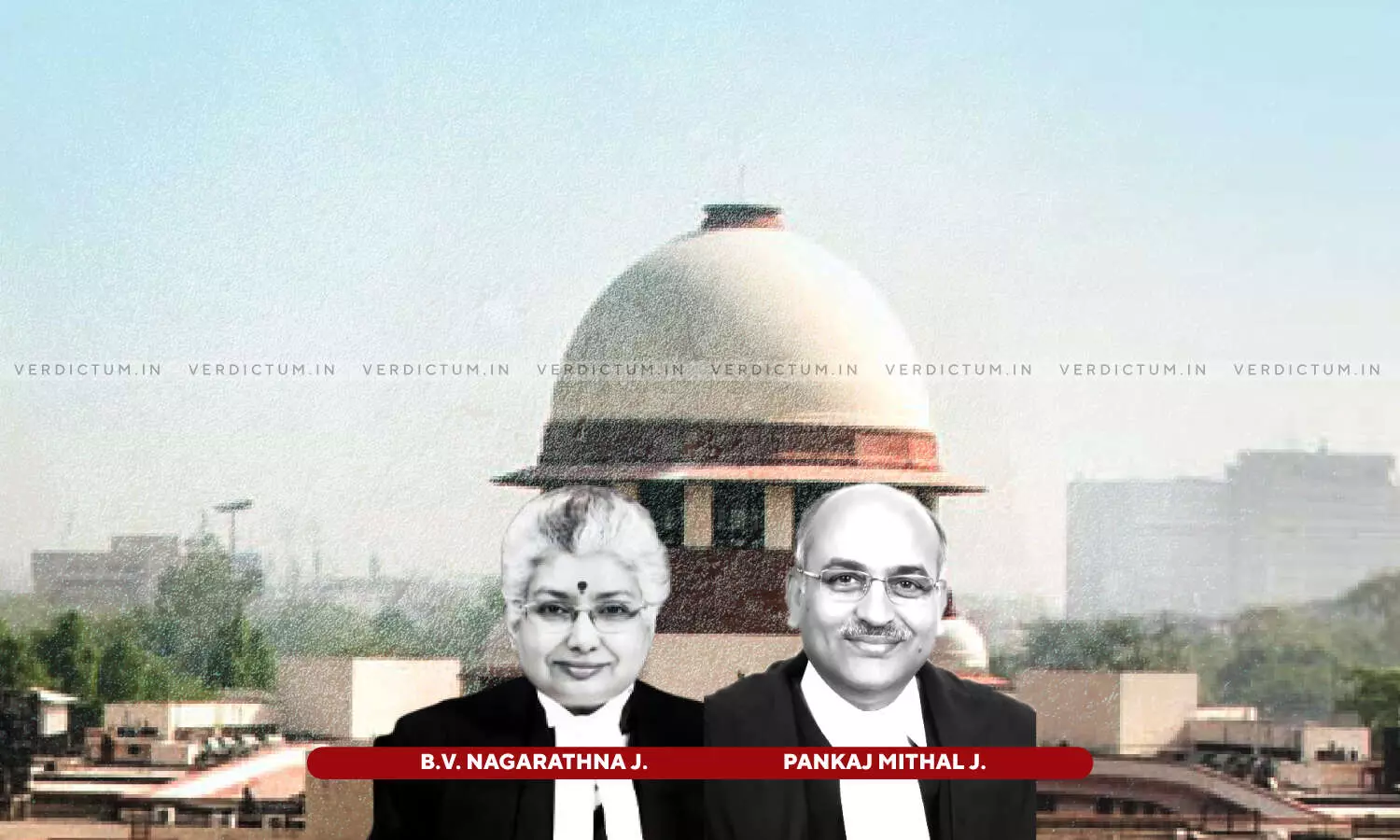
Sessions Court Must Order Victim Compensation In Cases Of Bodily Injury To Women And Children: Supreme Court
 |
|The Supreme Court has directed that sessions courts dealing with matters concerning bodily harm to women and children shall order for compensation to be paid at the time of passing their decision on conviction or acquittal.
The Court was hearing a Special Leave Petition against the Bombay High Court's dismissal of an interim application in a Criminal Appeal seeking suspension of sentence and grant of bail. The appellant was convicted for gang rape and using force to outrage a woman's modesty under the Indian Penal Code (IPC) and penetrative sexual assault under the Protection of Children from Sexual Offences Act (POCSO).
During the course of hearing, the Amicus Curiae in the case, Senior Advocate Sanjay Hegde, noticed that the sessions court had not ordered compensation to the victim, for which a specific provision exists under the Code of Criminal Procedure, 1973 (CrPC)
A Division Bench of Justice B.V. Nagarathna and Justice Pankaj Mithal held, "[W]e direct that a Sessions Court, which adjudicates a case concerning the bodily injuries such as sexual assault etc. particularly on minor children and women shall order for victim compensation to be paid having regard to the facts and circumstances of the case and based on the evidence on record, while passing the judgment either convicting or acquitting the accused."
The Court said that the said direction must be implemented by the District Legal Services Authority or State Legal Services Authority "in letter and spirit and in the quickest manner and to ensure that the victim is paid the compensation at the earliest." And depending upon the facts, there can also be a direction for interim compensation by the sessions court.
Advocate Karl Rustomkhan appeared for the appellant and Advocate Prastut Mahesh Dalvi appeared for the State of Maharashtra.
Hegde submitted that victim compensation schemes made under Section 357A of the CrPC are "in vogue in every State but hardly being implemented in its true letter and spirit". He noted that Maharashtra, where this case originated, has the Manodhairya Scheme for rape victims, children who are victims of sexual offences and women and child victims of acid attack. This scheme, he said, is in operation but it is not known whether the victim in the present case benefitted from it.
Hegde also submitted that under Section 357B of the CrPC, the compensation is in addition to fine under Section 376D of the IPC and there is also a provision for treatment of victims but the same is not being implemented in its true letter and spirit.
The Court perused the Order and Judgment of the Trial Court and found that no direction for payment of victim compensation was ordered. "Such a lapse on the part of Sessions Court would only delay payment of any compensation under Section 357-A of the CrPC."
In the case, the appellant was aggrieved by the conviction and the 20-year sentence imposed on him by the sessions court, and contended that he had already undergone nine years and seven months of actual sentence and ten years and seven years with remission. He submitted that he had undergone more than 50 percent of the sentence and that his co-accused was granted relief of suspension of sentence.
The Court, noting these circumstances, held that the appellant was entitled to suspension of sentence and release on bail. It directed that he be produced before the sessions court as early as possible, which shall release him on bail, subject to conditions that it may impose.
For the purpose of implementing Section 357A of the CrPC, the Court directed that a copy of the present Order be circulated by the Registry to all the High Courts who were requested to transmit it to all principal district judges and in turn to the sessions judges "dealing with such matters, who are under an obligation to order for victim compensation in an appropriate case."
The Court held that in the present case, the victim was entitled to be considered for compensation under Rule 7 of the POCSO Rules, 2012 and Rule 9 of the POCSO Rules, 2020. Noting that the sessions court had not granted compensation, the Court directed the Bombay High Court to consider the victim's case for the same, "which shall be interim in nature, at the earliest."
Cause Title: Saibaj Noormohammad Shaikh v. State of Maharashtra [SLP Crl. 13890 of 2024]
Appearance:
Senior Advocate Sanjay Hegde as Amicus Curiae
Petitioner: Advocates Karl Rustomkhan, Nidhi Khanna and Akshata Desai
Respondent: Advocates Prastut Mahesh Dalvi, Siddharth Dharmadhikari and Aaditya Aniruddha Pande
Click here to read/download the Order